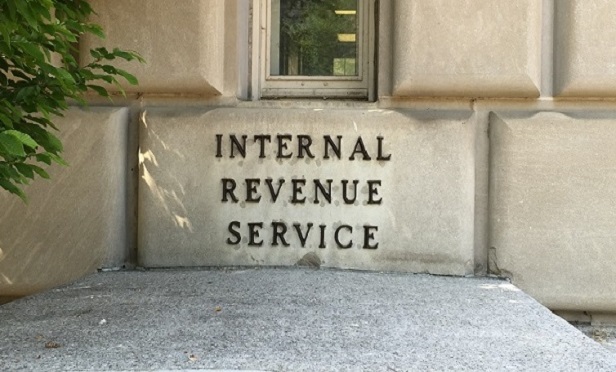
 (Photo: Allison Bell/ALM)
(Photo: Allison Bell/ALM)
Tax groups are urging the Internal Revenue Service to integrate its "significant number" of outdated legacy technology systems as it prepares to report to Congress on how to redesign the agency as set out in the Taxpayer First Act.
The Act, signed into law on July 1, 2019, requires the IRS to submit to Congress by the end of fiscal 2020 a comprehensive proposal to reorganize to better support America's taxpayers.
"The IRS has not had a major reorganization of its structure since implementation of the IRS Restructuring and Reform Act of 1998," according to IRS Commissioner Charles Rettig.
The Act, as the IRS explains, "aims to expand and strengthen taxpayer rights and to reform the IRS into a more taxpayer-friendly agency by requiring it to develop a comprehensive customer service strategy, modernize its technology and enhance its cybersecurity."
The American Institute of Certified Public Accountants, along with 10 stakeholder groups including the Latino Tax Professionals Association, the National Association of Enrolled Agents and the National Association of Tax Professionals, told the IRS in a Jan. 30 letter that the "significant number" of IRS legacy systems "prevents it from using current and evolving technology."
The groups recommended the IRS instead "move to a platform company model in which the technological infrastructure allows for integration and coordination of information throughout the organization. An integrated infrastructure will ultimately allow the IRS to meet the needs of both the taxpayers and their representatives in an efficient and timely manner."



